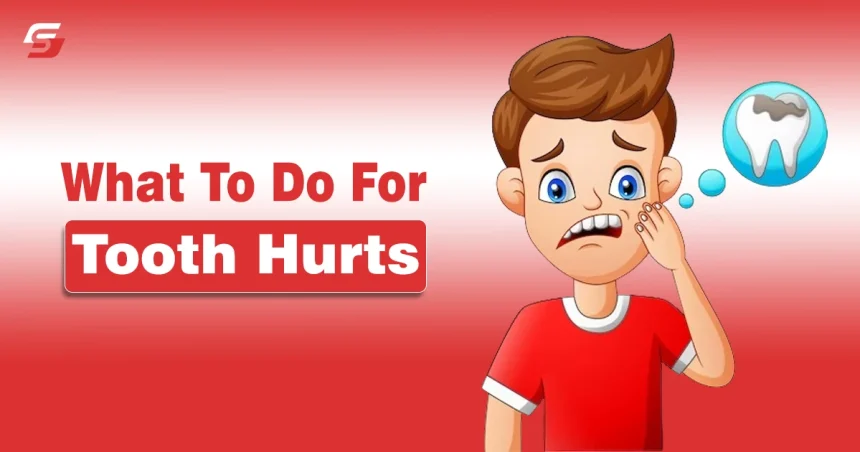The Mystery of the Tooth: What May Be Causing Your Tooth Pain
Chewy Coffin: How Gum Recession Ties Into Sinister Sensitivity
Gum recession is a dental condition caused by the reduction of the gum tissue around the teeth, exposing more of the tooth or the tooth’s root. This can make sense discomforting, and hot or cold stimuli might be able to induce a pain response. Recession is the loss of tissue around the teeth, which can occur as a result of aging, aggressive brushing, gum disease, or hereditary factors.
The occurrence of pockets brings in a higher possibility for bacteria to grow, increasing the chances of infection and inflammation, leading to more sensitivity for teeth once the gums begin to recede away from their perch.
This link only reinforces how critical good dental hygiene is and how vital regular checkups can be in tracking the health of the gums. If you find that your gums have begun to recede and you are suffering from tooth pain, you should see your dentist as soon as possible as they may recommend scaling and root planing, fluoride varnishes, and in more serious cases, gum grafting to restore gum tissue and reduce sensitivity.
Clenching and Grinding can Damage your Teeth
Bruxism, most often known as the grinding or clenching of teeth, is a repetitive behavior that usually takes place while sleeping or under stress. A lot of people who grind their teeth, don’t even know they do it and then notice they wake up with a sore jaw or headaches and pain in teeth that don’t hurt itself but simply the nearby teeth were straining away from you while you were sleeping and are now reacting to be hurt. Bruxism can crack down on enamel, as well as cause inflammation in the gums surrounding the teeth, as a result of pressure. It can even cause severe tooth sensitivity as the enamel, a natural protective layer, breaks down.
Moreover, the constant grinding may subsequently require the use of a protective dental appliance, such as a night guard. If you suspect that grinding could be the reason behind your tooth pain, tracking your symptoms and talking to your dentist can help create a plan to manage the pain now and provide tooth protection in the future.
Read Also: Are Mental Health Apps Spying on You? A Deep Dive into Data Collection
Sinus Infections: Unwanted House Guests Making Your Mouth Feel Weird
Most people do not realize that a sinus infection can cause tooth pain, and assume that the discomfort arises exclusively from within the mouth. Sinusitis, which means inflammation of the sinuses, can explain upper teeth pain since the sinuses are close to the upper teeth and sinus cavities can become inflamed. The sinus infection causes some swelling of the sinus lining which pushes on the roots of the upper teeth and can feel like a toothache.
This can often confuse dental professionals and patients are seeking some kind of dental fix when the problem is originating in nasal congestion or sinus trouble for example. If the discomfort in your teeth is associated with facial stress, fever, or nasal blockage, then it might be beneficial to talk to a doctor regarding sinus troubles. Treatment options include saline nasal sprays, decongestants, or in extreme cases antibiotics to treat the underlying infection.

Taste The Pain: Your Diet May Be The Culprit
The Sour Truth: How Acidic Foods Can Effect Your Teeth
Your diet influences oral health to a large extent, and it is essential for people facing tooth sensitivity and pain. Foods that are acidic such as citrus fruits, vinegar, and some sodas can gradually wear away enamel. The outermost layer of the teeth is called enamel, and with its loss, the teeth tend to be more sensitive, mainly to temperature changes. Additionally, making a habit out of eating acid-based foods can lead to the erosion of the enamel and make your teeth more susceptible to decay.
In order to alleviate these effects, moderation and the implementation of best practices — like drinking water right after eating acidic foods and using a straw when consuming acidic drinks — are critical. Adding remineralizing foods such as dairy and greens could replace some of the minerals lost in enamel. Deep cleanings by a dental hygienist may also be a critical component to stopping, and/or mitigating, enamel loss.
Sweet Sabotage: Tooth Sensitivity and The Perils of Sugar
The sugar is one of the enemies that is not thought of usually, when it comes to pain of the tooth. As you consume sugar, it reacts with the bacteria in the mouth producing acid that eats the enamel. This can cause a deterioration of the tooth over time, leading to cavities, even without visible crack.
Excessive sugar, as noted earlier, encourages inflammation and increasingly poor oral health, setting the teeth up for painful sensitivity. This makes it essential to avoid the hidden sugars found in processed food and drinks that can affect tooth health.
By maintaining a diet that is sugar-free and including good oral hygiene routines into your daily life, you can suppress your emotional desire for sweet substances and your teeth will be protected from unnecessary harm too. If you go to the dentist regularly, they can ensure any issues related to sugar consumption are dealt with before they become bigger problems.
Drink Water! Can A Lack Of Water Lead To A Toothache?
But hydration rarely gets a mention when dental health is being discussed, despite its part and parcel role in oral wellness. Lack of fluids in the body can cause a dry mouth, reducing saliva production, which is important since saliva helps neutralize acids, wash away food debris, and fight bacteria. This makes the teeth more sensitive along with the mouth being more susceptible to cavities and gum disease due to less saliva.
Insufficient fluid intake can also lead to dryness of the mucous membranes in the mouth and cause oral ulcers or pain. In order to stay hydrated, drink plenty of water throughout the day and be aware of dehydration. In addition, you can discuss the use of saliva substitutes with your health care provider if you live in a dry climate or have medical conditions that lead to a dry mouth.
DIY DetectivesHome Remedies for Tooth Pain Solution
Nature’s Cure: Clove Oil and Other Natural Remedies
Clove oil has been used for centuries and is known for its pain-relieving and anti-inflammatory effects. Clove oil is a common at-home remedy for toothaches and other dental pain, especially among those looking for a natural alternative to pain reliever pills. Eugenol, which is found in clove oil, is a natural anesthetic that can help temporarily numb the area of discomfort. All you have to do is put a drop of clove oil on a cotton wool ball and apply it over the affected area, and this will give you great results.
Moreover, natural herbs such as peppermint tea bags, turmeric paste, and even garlic have demonstrated antibacterial properties that will relieve the pain. These treatments may help with temporary solutions but if the pain stays or worsen, these treatments will not replace professional dental care.
Choosing Between Hot or Cold: A Comprehensive Guide to Heat vs. Cold
Heat and cold are also excellent home remedies for alleviating tooth pain, but should be used only according to the ground of the discomfort. Cold compression are especially well suited for relief of inflammation and pain, which make them perfect for acute pain following dental trauma or dental injury.
Conversely, a hot compress can relieve tension and help increase blood flow, which may be beneficial for sinusitis or tension headaches caused by teeth clenching in the jaw. People should try both approaches to see which one offers the maximum relief for their individual situation, but with the important caveat that wraps should be used to ensure that no direct skin contact occurs, for fear of burns or irritation.
Saltwater and baking soda rinses for rinsing right
Saltwater and baking soda rinses can also provide significant help for oral health and tooth pain management. Saltwater rinse: Particularly productive rinse helps minimise inflammation and kill bacteria, gat protector: versus remains — lowers down some oral tissues restaurateur. A saltwater rinse: Dissolve one teaspoon of salt in an 8-ounce glass of warm water, swish around in mouth, and spit out.
Likewise, a rinse with baking soda helps counteract acids and inflammation in a very mild but effective manner to relieve tooth sensitivity. How to use: Mix half a teaspoon with a glass of water and gargle. Both rinses can contribute to better oral health when combined with routine brushing and flossing, but chronic problems should be addressed with your dentist.
When Should You Be Worried? – Signs that Guiding to Professional Help is Required
Red Flags: Identifying Serious Symptoms That Require Attention
An occasional sensitivity or dull acheis par for the course but a few should prompt you to get in for an emergency dental appointment. However, if one side of a tooth hurts without a cavity visible, if there is extreme, continuous pain that prevents regular activity, difficulty with chewing, noticeable swelling in the gum or face, strong responses to temperature, or any pus or other material discharging from the gums, that would suggest something more serious. If your tooth is decayed, infected, or has an abscess, you may need to see a dentist to prevent complications. Be aware of these warning signs and book an appointment to protect your dental health.
Visiting the Dentist: What to Bring in for an Appointment for Tooth Pain
At your dental visit for toothaches, you would receive a comprehensive examination. The dentist will talk about your symptoms, medical past, and any changes with your oral health the previous few months. Your dentist might use X-rays or other tools to look beneath the surface of your jaw and teeth.
Based on what they find, treatment can include everything from a simple fluoride application to deeper restorative procedures, such as fillings or root canals, or further imaging for the analysis of a specific area. Transparency in what hurts, how it hurts will help your dentist deliver the best possible work adjusted to your personal requirements. Always remember that early intervention can prevent more serious illnesses.
When Toothache Is Not a Toothache: When Toothache Is Not Just a Toothache
However, tooth pain can often be an indication of something more than just a dental problem and can develop into a more serious health situation. Conditions like diabetes can make it so that gum disease follows and there is a growing correlation between cardiovascular disease and poor oral health. These systemic health issues could cause persistent pain and sensitivity which serves as the body warning that these health problems are occurring, further emphasizing the mind-body relationship that oral health has on overall health and wellness.
Thus, regular dental visits are essential for preventive care and diagnosis of systemic problems that may be lurking beneath the surface. Positioning yourself as an active component in your oral health management brings you awareness and lasting benefits.


